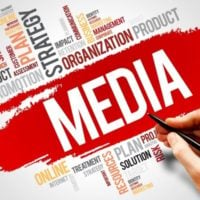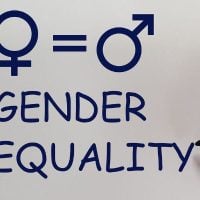Navigating the world of grant applications can be a daunting task for non-governmental organizations (NGOs). With a plethora of funding opportunities available, understanding how to effectively apply for grants is crucial for sustaining and expanding their missions. Grant applications serve as a vital lifeline for NGOs, providing the necessary financial resources to implement projects, support communities, and drive social change.
However, the process is often competitive and requires a strategic approach to stand out among numerous applicants. The importance of grant applications cannot be overstated. They not only provide essential funding but also help NGOs articulate their goals, demonstrate their impact, and build relationships with potential donors.
A well-crafted grant proposal can open doors to new partnerships and collaborations, ultimately enhancing the organization’s credibility and visibility in the sector. As such, mastering the art of grant writing is an indispensable skill for NGOs seeking to thrive in an increasingly challenging funding landscape.
Research and Planning Tools for Grant Applications
Effective research and planning are foundational steps in the grant application process. NGOs must first identify potential funding sources that align with their mission and project goals. Various online databases and platforms, such as GrantStation, Foundation Center, and Grants.gov, offer comprehensive listings of available grants tailored to specific sectors.
These resources allow organizations to filter opportunities based on criteria such as geographic focus, funding amount, and eligibility requirements. Once potential grants have been identified, NGOs should develop a strategic plan that outlines their objectives, target audience, and project timeline. Tools like Trello or Asana can help organizations create visual project boards that track tasks and deadlines, ensuring that all team members are aligned and accountable.
Additionally, conducting a SWOT analysis (Strengths, Weaknesses, Opportunities, Threats) can provide valuable insights into the organization’s capacity to execute the proposed project and highlight areas that may require further development or support.
Budgeting and Financial Tools for Grant Applications
A well-structured budget is a critical component of any grant application. It not only demonstrates the financial feasibility of the proposed project but also instills confidence in potential funders regarding the organization’s financial management capabilities. NGOs should utilize budgeting tools such as Excel or Google Sheets to create detailed budgets that outline all anticipated expenses, including personnel costs, materials, travel, and overhead.
In addition to creating a budget, NGOs must also be prepared to provide financial documentation that supports their request for funding. This may include previous financial statements, tax returns, or audits. Tools like QuickBooks or Wave can assist organizations in maintaining accurate financial records and generating reports that showcase their fiscal health.
By presenting a transparent and well-organized financial picture, NGOs can enhance their credibility and increase their chances of securing funding.
Collaboration and Communication Tools for Grant Applications
Collaboration is key when it comes to preparing a successful grant application. Engaging team members from various departments—such as program development, finance, and communications—can lead to a more comprehensive proposal that addresses all aspects of the project. Tools like Slack or Microsoft Teams facilitate real-time communication among team members, allowing for seamless collaboration regardless of location.
Moreover, utilizing cloud-based document sharing platforms like Google Drive or Dropbox ensures that all stakeholders have access to the latest version of the proposal. This not only streamlines the editing process but also fosters a sense of ownership among team members. By encouraging open dialogue and feedback throughout the proposal development process, NGOs can create a more robust application that reflects diverse perspectives and expertise.
Writing and Editing Tools for Grant Applications
The writing phase of a grant application is where ideas come to life. Clear and compelling writing is essential to convey the organization’s mission, project goals, and anticipated impact effectively. Tools like Grammarly or Hemingway Editor can assist in refining the proposal by identifying grammatical errors and suggesting improvements in clarity and readability.
Additionally, NGOs should consider using templates or examples from successful grant applications as a guide. Websites like Proposal Central or the National Institutes of Health (NIH) provide access to sample proposals that can inspire organizations in crafting their own narratives. It’s also beneficial to have multiple team members review the proposal before submission; fresh eyes can catch errors or inconsistencies that may have been overlooked.
By prioritizing quality writing and thorough editing, NGOs can significantly enhance their chances of success.
Evaluation and Reporting Tools for Grant Applications
Evaluation is an integral part of any grant-funded project. Funders often require organizations to demonstrate how they will measure success and report on outcomes. Developing a robust evaluation plan at the outset can help NGOs articulate their metrics for success clearly.
Tools like Logic Models or Theory of Change frameworks can assist in mapping out the expected outcomes and indicators for measuring progress. Furthermore, utilizing data collection tools such as SurveyMonkey or Google Forms can streamline the process of gathering feedback from stakeholders and beneficiaries. These insights not only inform ongoing project adjustments but also provide valuable data for reporting back to funders.
By establishing a culture of evaluation from the beginning, NGOs can ensure they are accountable to their funders while also learning from their experiences to improve future projects.
Project Management Tools for Grant Applications
Managing a grant-funded project requires careful planning and execution. Project management tools like Monday.com or Basecamp can help NGOs keep track of tasks, deadlines, and responsibilities throughout the project lifecycle. These platforms allow teams to assign tasks, set milestones, and monitor progress in real-time, ensuring that everyone remains on track.
Additionally, integrating Gantt charts into project management practices can provide a visual representation of timelines and dependencies between tasks. This clarity helps teams anticipate potential bottlenecks and adjust plans accordingly. By leveraging project management tools effectively, NGOs can enhance their operational efficiency and ensure that grant-funded projects are delivered on time and within budget.
Additional Resources for Grant Applications
Beyond the tools mentioned above, there are numerous additional resources available to support NGOs in their grant application efforts. Online courses offered by platforms like Coursera or edX can provide valuable training in grant writing and fundraising strategies. Additionally, many local community foundations offer workshops or webinars focused on grant writing best practices.
Networking with other NGOs through platforms like LinkedIn or attending sector-specific conferences can also yield valuable insights into successful grant application strategies. Engaging with peers allows organizations to share experiences, learn from one another’s successes and challenges, and potentially collaborate on future projects. In conclusion, while the grant application process may seem overwhelming at first glance, utilizing the right tools and resources can significantly enhance an NGO’s chances of success.
From research and planning to budgeting and evaluation, each step requires careful consideration and strategic execution. By investing time in developing these skills and leveraging available resources, NGOs can secure the funding necessary to drive their missions forward and create lasting impact in their communities.









































